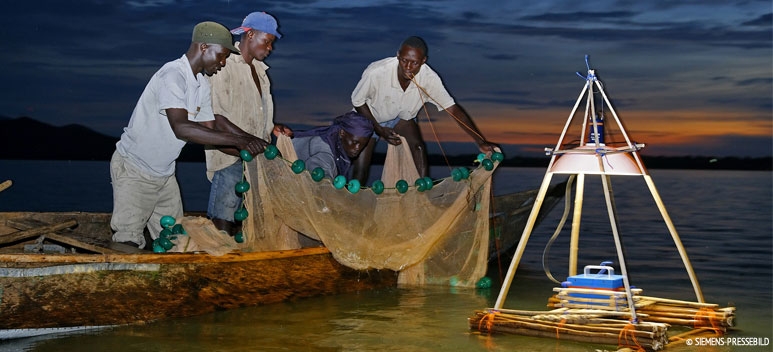
The Foundation “Future of the Carbon Market” was called into being in 2011 using funds from the Federal Environment Ministry’s Climate Change Initiative (IKI). Its aim is to promote implementation of innovative and programmatic carbon market mechanisms, in particular by providing start-up financing, consultation and advice. The Foundation’s capital is used in particular to promote projects and programmes in developing countries and in emerging economies which help those countries develop low-carbon economies in a sustainable approach.
The Foundation’s activities comprise the promotion of programmatic approaches in Kenya, Zambia, Tanzania, Uganda and Thailand, as well as support for conceptional and methodological activities such as the development of standardised baselines in West Africa and a study on the additionality of efficient cook stoves in rural Africa.
The CDM’s Programme of Activities (PoA) serves as a template for project design, enabling small-scale activities to be consolidated into a larger-scale programme. By supporting CDM PoAs with start-up financing, an innovative approach is taken to address the lack of start-up capital in developing climate mitigation programmes – one of the central problems surrounding PoAs. As payments from the CDM are only made on successful implementation of the respective activities, many stakeholders found it extremely difficult to implement PoAs. Given the challenges faced, the Foundation provided the missing start-up capital on the premise that project milestones be achieved. In 2017, in light of the uncertain future of the CDM post-2020, the Foundation issued a moratorium on support for project activities conducted under the CDM. The Foundation thus actively supports its project partners in the search for solutions for the transition of climate change mitigation programmes under the Paris Agreement, while also focusing on the promotion of national programmatic approaches.
Notably, in 2019 the Foundation entered into a cooperation agreement with the Thailand Greenhouse Gas Organisation (TGO) to support the Thailand Low Carbon Cities Programme (LCCP) by means of a results-based payment mechanism. The programme was developed by the Thai Government with support from the World Bank’s Partnership for Market Readiness and is linked to a mechanism for voluntary carbon offsets – the socalled TVER scheme.
An evaluation of the Foundation’s activities conducted in 2019 confirmed its valuable contribution in promoting mitigation programmes and in building local structures in developing countries. In its remaining term, the Foundation plans to initiate additional activities to support the carbon market under the Paris Agreement. These include further support for project partners in the CDM transition and in implementing the national mechanism to promote national programmes for low-carbon urban development in Thailand. The Foundation is also considering the creation of a funding programme to develop project documents for programmatic mitigation activities under Article 6 of the Paris Agreement and a study on so-called nature-based solutions in relation to the carbon market.
Countries: Kenya, Rwanda, Zambia, Senegal, Tanzania, Uganda
Role of BMU: BMU-financed
Lifecycle: 2011 - 2021
Implementation: Kommunalkredit Public Consulting
Further Information: http://www.carbonmarket-foundation.org
Contact: Martin Gauss, m.gauss@kommunalkredit.at
Cookie Settings
Marketing-Cookies werden von Drittanbietern oder Publishern verwendet, um personalisierte Werbung anzuzeigen. Sie tun dies, indem sie Besucher über Websites hinweg verfolgen.
Provider:
Statistik Cookies
Statistik-Cookies dienen der Analyse und helfen uns dabei zu verstehen, wie Besucher mit unserer Website interagieren, indem Informationen anonymisiert gesammelt werden. Auf Basis dieser Informationen können wir unsere Website für Sie weiter verbessern und optimieren.
Provider:
Erforderliche Cookies
Erforderliche Cookies sind für den reibungslosen Betrieb der Website zuständig, indem sie Kernfunktionalitäten ermöglichen, ohne die unsere Website nicht richtig funktioniert. Diese Cookies können nur über Ihre Browser-Einstellungen deaktiviert werden.
Provider: